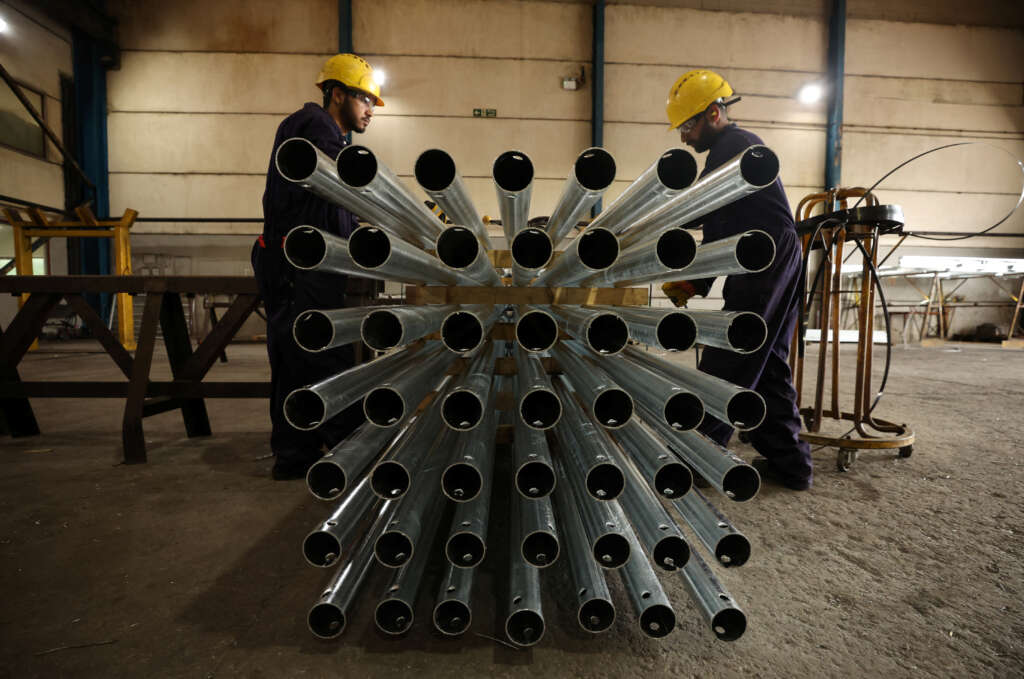By Andy Bruce
LONDON (Reuters) – Britain has become less competitive and less attractive to foreign investors as a result of soaring energy costs and recent political turmoil, manufacturers said in an industry survey released on Monday.
The proportion of manufacturers who think Britain is a competitive location halved to 31% from 63% a year ago, and 43% said Britain had become less attractive to overseas investors, according to the survey by Make UK, the main trade body for British manufacturers, and accountants PwC.
The survey of 235 businesses took place from Nov. 1 to Nov. 22, when the turmoil of Liz Truss’s short-lived government was fresh in people’s minds, and 53% of firms said ongoing political instability had damaged business confidence.
This week finance minister Jeremy Hunt is due to outline plans to sharply scale back energy subsidies for businesses.
Make UK said the plans are likely to lead to exacerbate cuts to jobs and production that were already in the pipeline.
When the survey took place in November, two thirds of manufacturers expected to reduce headcount or cut output because of high energy costs.
Manufacturers in Britain have struggled of late, with closely-watched S&P Global business surveys showing they suffered a more a severe downturn in December than other Group of Seven nation peers.
“The year ahead is going to be very challenging for manufacturers with a potent mix of factors testing their resolve,” Stephen Phipson, chief executive of Make UK.
“Ongoing supply chain disruption, access to labour and high transport costs which show no sign of abating can be added to a growing sense of economic and political uncertainty in their main markets.”
Phipson said there was a significant risk that British manufacturers will “fall through the cracks” if the government failed to match the generosity of energy bill support programmes that Britain’s competitors have in place.
The government plans to scale back energy subsidies for businesses will see the cost of support fall by 85% during the next financial year, limiting the cost to 5 billion pounds ($6 billion), the Daily Telegraph reported on Friday.
(Reporting by Andy Bruce; editing by David Milliken)
